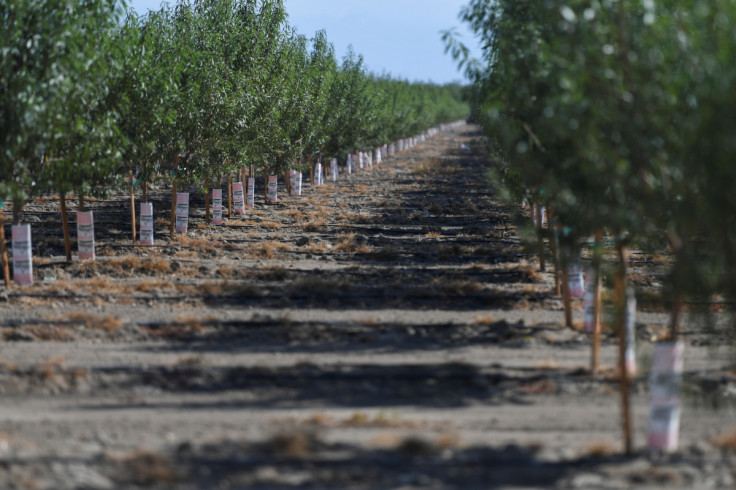
Rural Latino communities in California face disproportionate health risk as a result of a highly toxic herbicide widely used on U.S. crop fields called Paraquat, a new study by the Environmental Working Group (EWG) reveals.
Despite its links to Parkinson's disease and other health risks, including childhood leukemia and non-Hodgkin lymphoma, Paraquat is widely used across the country. Crop growers are disproportionately spraying the chemical in areas dominated by large farms and inhabited by Latino farm workers and their families, making environmental health risks worse for the communities, according to the study.
Paraquat is also banned in more than 60 countries due to its connections with the aforementioned health risks, the study added.
Most of the paraquat sprayed in California is used in five counties where Latinos represent 75% of the population or more and have poverty rates of at least 20%, EWG said in its first-of-its-kind analysis.
"We were shocked when we saw, in particular, how these communities are disproportionately exposed, and are disproportionately Latino and poor," said Scott Faber, EWG's policy director.
EWG's analysis looked at data from California because it is the only state with readily available paraquat figures. It found about 80% of the substance was spread in Latino-majority census tracts between 2017 and 2021. Latinos make up about 96% of farmworkers in California.
Overall, 5.3m lb of paraquat were spayed in the state, the analysis found, though its use was concentrated in central counties that produce fruit and nut crops, like almonds, grapes, pistachios, alfalfa, cotton, walnuts and pomegranates.
In one of those counties, Kern, EWG found 1.2m lb were spread across 1,200 sq miles of farmland. The county's poverty rate is nearly 30%.
"No one should be exposed to pesticides at that level," Al Rabine, EWG GIS analyst and lead author of the report said.
Paraquat is mostly used in agricultural fields to clear land before crops are planted. Much of the chemical ends up in soil for years, but it can also linger in dust or drift through the air to nearby communities, which then exposes other residents to its risks. Research has also found those living within a third of a mile of where the chemical is sprayed are twice as likely to develop Parkinson's, EWG noted.
Regardless of growing evidence of its harm, the Environmental Protection Agency in the U.S. keeps defending its use. EWG also notes that the environmental agency has deemed the herbicide too toxic to use on golf courses, but it still allows its spraying on crop fields.
"The findings of our analysis underscore the urgent need for action by the state to protect these communities from the harmful effects of exposure to this toxic weedkiller," Rabine said.
Outside of California, the herbicide is widely used in Iowa and the Mississippi River valley, The Guardian reported. Federal law required the EPA to consider pesticides' economic benefit before enacting restrictions, and an agency analysis "concluded that these [health] risks were outweighed by the benefits of the use of paraquat."
An ongoing federal lawsuit brought by public health groups asks a court to order paraquat off the market, but states can also ban it, Faber said.
"States shouldn't wait for the agency to act," the study concludes. "Federal pesticide law sets a floor, not a ceiling. To protect their citizens and public health, state and local governments have the power to enact measures such as a ban on paraquat."
© 2025 Latin Times. All rights reserved. Do not reproduce without permission.





